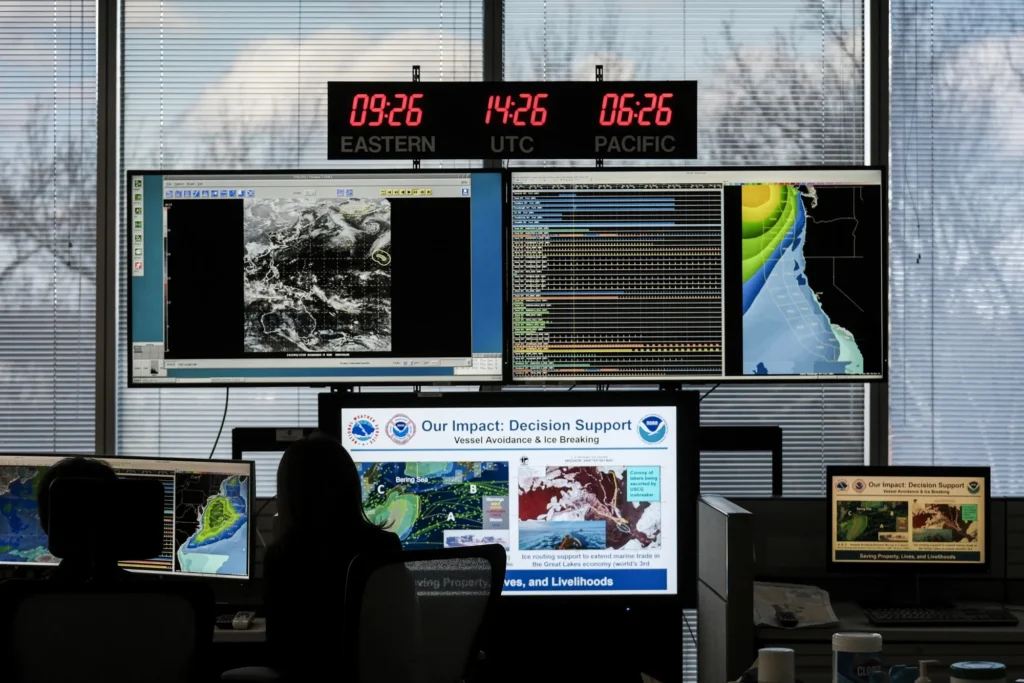A major shift in the U.S. government’s weather data strategy is raising alarms among scientists and global forecasters. According to a Bloomberg report, the U.S. is moving toward increased reliance on private-sector weather-data services—potentially limiting the amount of free, publicly available data that international forecasting systems depend on.
Global Implications for Weather and Climate Forecasting
Meteorologists and policy analysts warn that this change could have far-reaching consequences for global weather prediction and climate monitoring. Many national meteorological agencies, especially in developing countries, rely heavily on shared open data from the U.S. and other advanced networks to model storms, droughts, and extreme weather events.
Reduced Data Sharing Could Endanger Global Accuracy
Experts fear that reduced data sharing could weaken forecasting accuracy worldwide, undermining early-warning systems that protect vulnerable communities from climate-related disasters. “Weather data is a global public good,” one analyst noted. “Restricting access would not only affect science but also put lives and economies at greater risk.”
Balancing Public Good and Private Innovation
As climate change intensifies, the debate highlights a growing tension between public interest and private innovation in the meteorological sector. Advocates are calling for international agreements to preserve open-access weather data as a cornerstone of global resilience and cooperation.
Preserving Open Data for a Safer Planet
The unfolding situation underscores the importance of maintaining transparent, accessible weather information to ensure preparedness and equity in the face of increasingly volatile global weather patterns.

